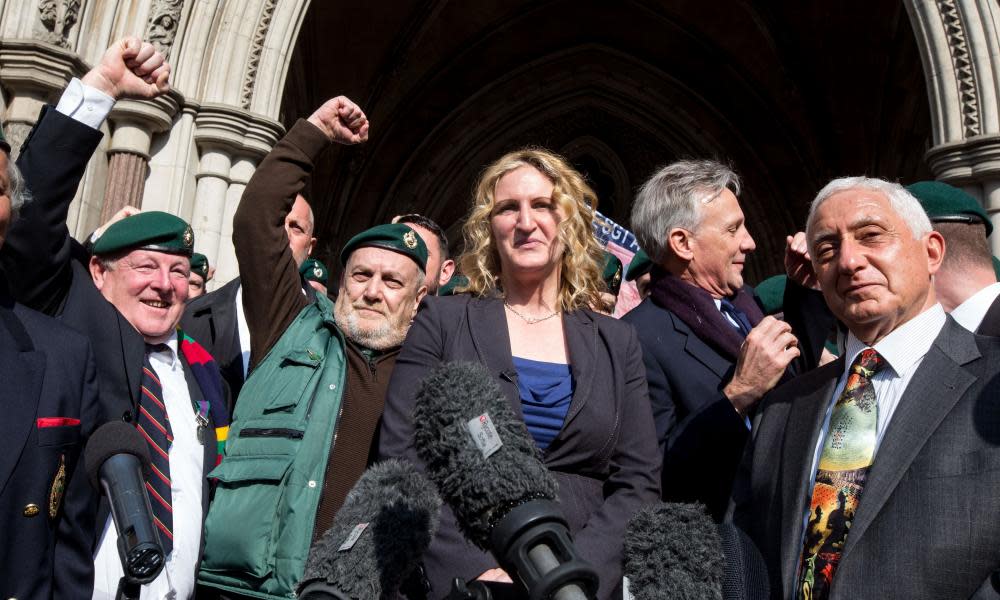The Guardian view on Marine A: prevent war crimes, don’t excuse them | Editorial

When justice is done, we should be glad. But the champagne-swigging jubilation that greeted the reduction of “Marine A” Alexander Blackman’s murder conviction to manslaughter on the grounds of diminished responsibility, went far beyond the acknowledgment that this was an appropriate outcome. To many of his supporters he is a “hero soldier” persecuted for shooting dead an injured Taliban fighter in Afghanistan. The judgment, however, was no exoneration: he killed a defenceless man, tried to make sure it was not witnessed, and attempted to cover up what he did. The judges considered mitigating factors, including his combat stress disorder. Nonetheless, they concluded that his crime was a severe one, that he held substantial responsibility for it, and that his dismissal from service was justified.
Drum-beating coverage of “our brave boys” veils the fact that British troops, like any others, are capable of terrible violations of the laws of war and the dictates of basic decency. Perhaps the catastrophe of Iraq, and the consciousness of the toll it took overwhelmingly on Iraqi civilians but also on coalition forces, has sensitised the public to the immense pressures facing soldiers and the often limited support they receive. More often than not, such abuses occur when there is an absence or failure of leadership. Another marine – briefly Blackman’s commanding officer – described the leadership and oversight in place as shockingly bad, and insisted he was not a single rotten apple. The answer is not to give soldiers a free pass to abuse and kill by attacking attempts to hold them to account, but to ask who else is responsible and how such behaviour can be prevented in future.
Blackman knowingly broke the rules of war (“I just broke the Geneva convention,” he told comrades). These are not a matter of etiquette, but morality; not a luxury, but a necessity. It is precisely because of the extremity of the situation, and the pressures upon troops, that clear rules are needed. They protect both civilians and soldiers. It took more than a century of campaigning to establish such standards. That they have often been ignored is a reason to uphold them vigorously, not to lower them.
It is not only that the end cannot justify the means. Believing that it can often leads to a different end, whether on the soil of Afghanistan or in the skies over Mosul. The fight against Islamic State there has seen a frightening acceleration of civilian casualties. Too many Iraqis and Syrians are dying in coalition strikes that are supposed to save them; and that fact, besides causing untold tragedy, is likely to fuel future radicalisation.
The increase in deaths began in the last weeks of the Obama administration – around the time that procedures were changed to make calling in strikes easier – but has gathered pace. It may reflect a tactical change in response to the heavy punishment that Iraqi forces took as they reclaimed eastern Mosul; and, around Raqqa, perhaps poor on-the-ground intelligence. But many fear that the Trump administration’s announcement of a review of the rules of engagement has been enough to lower the threshold in reality.
Western intervention in recent wars has been couched largely in moral terms. Intentions are not enough. Blackman told the fighter he killed: “It’s nothing you wouldn’t do to us.” But being better than the Taliban, let alone Isis, is no kind of baseline.

 Yahoo News
Yahoo News 
